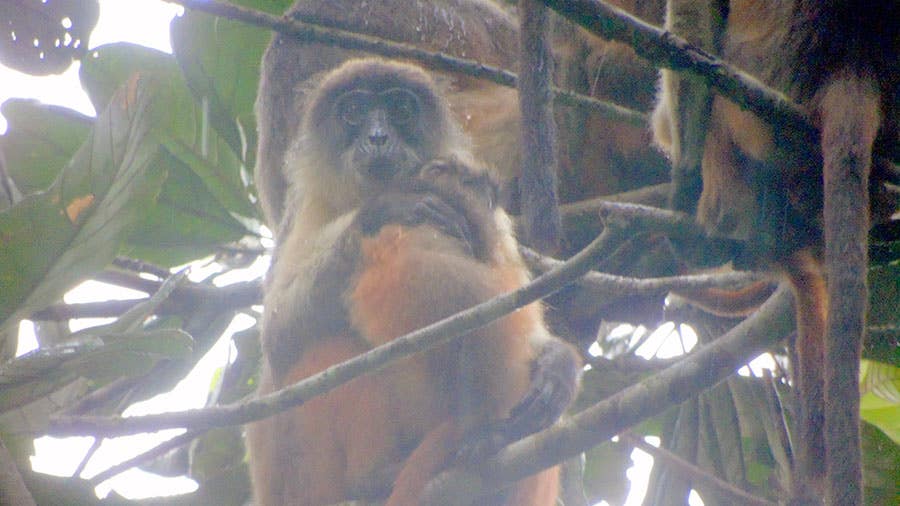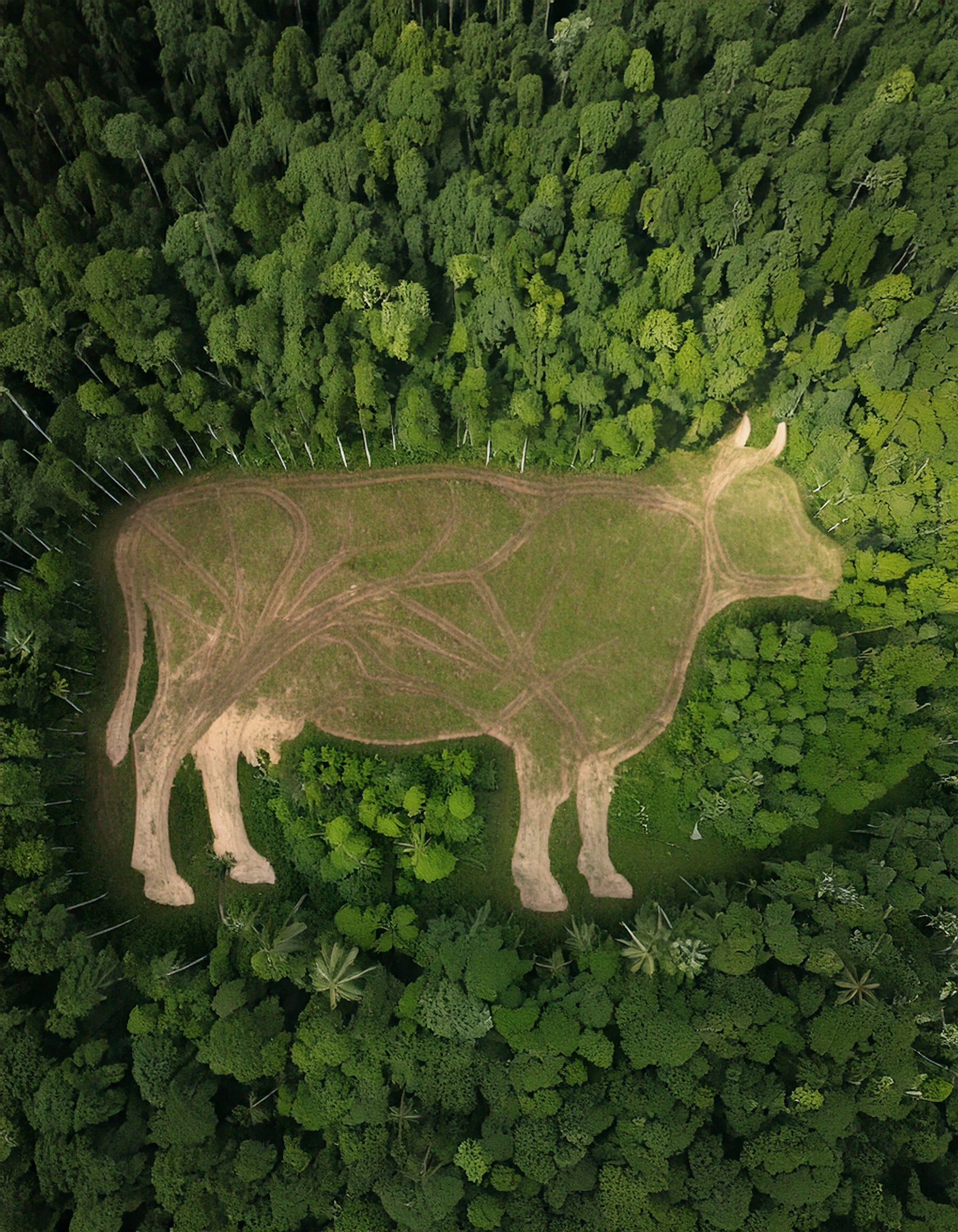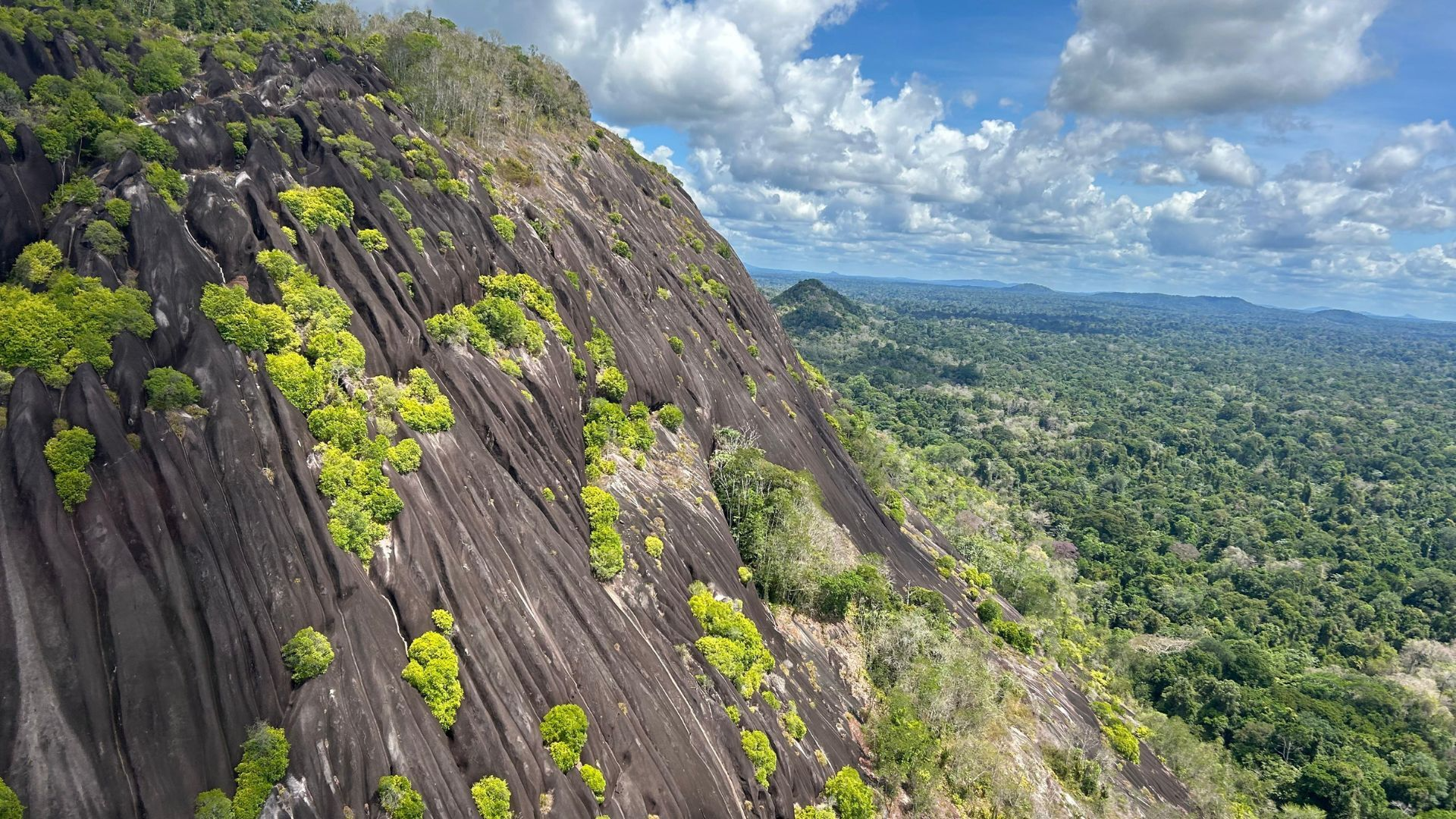Southwest Niger Delta Forest Project and Apoi Community Protecting the Swamp Forests the Monkeys Need to Survive
For immediate release
Oct. 16, 2020
A new 1,000-hectare (2,741-acre) community conservancy in Nigeria’s Apoi Creek Forest in Bayesla state will help protect between 150 and 200 critically endangered Niger Delta red colobus monkeys, possibly the most significant population remaining anywhere in the world. The effort to create a community conservancy was spearheaded by the Southwest Niger Delta Forest Project, a partner of Global Wildlife Conservation (GWC). The conservancy will be managed by the Apoi community together with SW/Niger Delta Forest Project, which has been working with the local community for seven years. The community-based conservation effort is key to the survival of the species, which is one of the 25 most endangered primates in the world. About three groups of the monkey have territories in the conservancy.
“The presence of the endemic Niger Delta red colobus monkey, known locally as the ‘epieni’ in the Apoi Creek Forests, was an important factor to the forest’s recognition as a wetland of international importance under the Ramsar Convention in 2008,” said Rachel Ashegbofe Ikemeh, director of SW/Niger Delta Forest Project. “Recent surveys provided evidence that this forest remains key to the continued survival of the remnant population of the Niger Delta red colobus monkey.”
The monkeys only live in a dense swamp forest that is extremely difficult to navigate and is so inaccessible that the species was only discovered and described by science in 1993. Researchers with the SW/Niger Delta Forest Project can only reach the forests in dug-out canoes and by wading through murky waist-deep water. It was estimated that there were 10,000 Niger Delta red colobus living in those forests during the 1990s. Today, there are about 500 individuals living scattered across an extremely small area. The monkeys’ current range is estimated to be between 78 and 200 square kilometers, down from a known historical range of 1,500 square kilometers. The decline has resulted from the lack of specific laws to protect forests and wildlife against logging, hunting and oil extraction. The new Apoi community bylaws are the first-ever protections for the Niger Delta red colobus.
The Apoi community is united in its support for the community conservancy, which was emphasized by the signing of an MOU between the SW/Niger Delta Forest Project and community leaders on Sept. 27. Chief Vinmarh G. Fietabara, chairman of the Council of Chiefs, Mr. Edu Kemeghesuotei, chairman of the Apoi Community Development Committee (CDC), and Mr. Godday S. Awudu, Apoi youth president, all signed the agreement and the entire Apoi community—all of its members—attended the signing ceremony, as well as some members of neighboring communities that share boundaries with the new conservancy.
Together, the SW/Niger Delta Forest Project and the Apoi community are developing a five-year management plan, which will establish formal protection for Niger Delta red colobus, improve land-use planning, adopt sustainable livelihood initiatives for the local community and improve the quality of the marsh forest. The Apoi community has already begun enacting and implementing new bylaws, and efforts to demarcate the boundaries of the conservancy are underway.
“Local communities are often the best managers and protectors of natural resources and so the work being done by the SW/Niger Delta Forest Project with the Apoi community is critical,” said Barney Long, senior director of species conservation at GWC. “GWC will continue to provide technical support to these efforts to empower the Apoi community to achieve the results they want and need, and we trust the Niger Delta red colobus monkey will benefit as well as the communities.”
The community conservancy is only the second ever created in Nigeria. Faced with a rapidly declining population of Niger Delta red colobus and several other primate species, SW/Niger Delta Forest Project and the Apoi community decided to take action to protect the forest themselves.
“We have a really strong partnership and have developed a solid relationship over the last 6 to 7 years, thanks to the continued presence of our team on the ground and the persistent efforts of our project director, so I believe we will tactfully surmount any challenges we may encounter,” said Kosipre Williams, field officer for SW/Niger Delta Forest Project.
Since 2013, the SW/Niger Delta Forest Project has monitored two populations of Niger Delta red colobus monkeys in Apoi Creek Forest and Kolotoro-Ongoloba Forest, overlapping Azagbene, Azama and Aleibiri territories. It has also pushed for local, state and international intervention to help the Niger Delta red colobus, which is on the brink of extinction.
“What Rachel and her team have accomplished, working in close collaboration with the Apoi Community, is truly remarkable, especially when one considers that the Niger Delta region is one of the most complicated and often dangerous regions to work in all of Africa,” said Russ Mittermeier, chief conservation officer for GWC. “This species is one of the highest priorities in our-soon-to-be published Red Colobus Action Plan, covering all the species of this most threatened African primate genus.”
Red colobus monkeys are the most threatened group of non-ape primates in mainland Africa. More than half of the 19 distinct forms of red colobus are classified as endangered or critically endangered on the IUCN Red List of Threatened Species. The primary drivers of their decline across Africa include hunting for trade and local subsistence and habitat devastation and fragmentation as the result of logging, mining, charcoal production and agriculture.
The SW/Niger Delta Forest Project has worked closely with the International Union for Conservation of Nature’s SSC Primate Specialist Group and The Red Colobus Conservation Network, and is supported by the Rainforest Trust, Margot Marsh Biodiversity Foundation, Mohammed Bin Zayed Species Conservation Fund, GWC’s Primate Action Fund, Primate Conservation Inc., National Geographic Society and other philanthropies.
# # #
Photo: The first photo of a Niger Delta red colobus monkey in the community conservation area. The photo was taken in the Apoi Creek Forest. (Photo courtesy of SW/Niger Delta Forest Project)
Global Wildlife Conservation
GWC conserves the diversity of life on Earth by safeguarding wildlands, protecting wildlife and supporting guardians. We maximize our impact through scientific research, biodiversity exploration, habitat conservation, protected area management, wildlife crime prevention, endangered species recovery, and conservation leadership cultivation. Learn more at https://globalwildlife.org
Contact
Devin Murphy
Global Wildlife Conservation
512-686-6188
Lindsay Renick Mayer
Global Wildlife Conservation
512-686-6225

Devin Murphy
Writer
Devin Murphy is Re:wilds’s senior communications specialist and helps Re:wild and its partners tell stories about the work they do to protect wildlife and wildlands around the planet. Her favorite stories about conservation include fascinating and little-known species and the dedicated humans protecting them.



